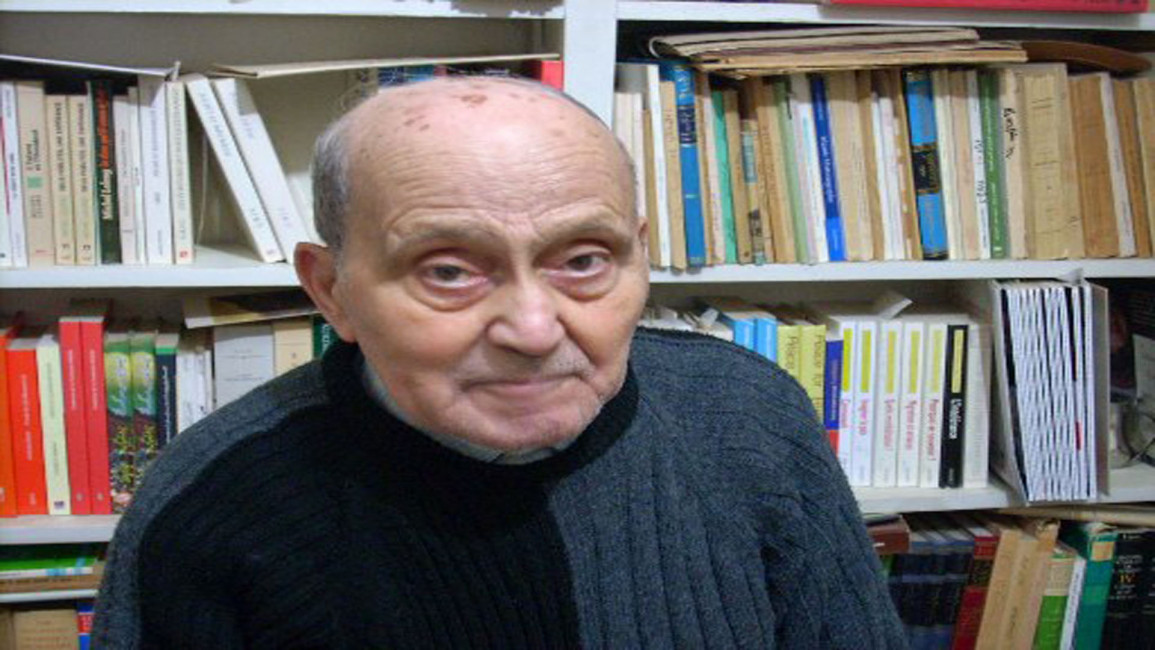
Alcohol, Islam and the right to an opinion
Mohammed al-Talebi is a Tunisian historian and a longtime professor of literature. Though he was engaged in the struggle against Zine Abedine Ben Ali's regime and has always prayed to become a martyr, he remains anonymous to most Tunisians and the wider Arab world.
He recently come into the spotlight, however, when he said that his own interpretation of the Quran shows that alcohol and prostitution are not forbidden.
His opinion stirred up a great deal of controversy and became a public cause, with many religious figures criticising and refuting his statement, including former Tunisian Mufti Sheikh Mohammad al-Mokhtar al-Salami.
What Talebi said is not actually new and has been echoed by many scholars in Tunisia and elsewhere in the past. This is not the topic here. What matters here is the reaction. For the first time, Tunisians are offered a chance to hold a free debate on a religious matter like the prohibition of alcohol or prostitution.
Tunisians have other concerns
Tunisians are currently preoccupied with other threats and challenges, from terrorism to the economy, and are thus not hugely concerned with trivial issues like the ones raised by Talebi. However, the freedoms they have been enjoying for four years, following the Jasmine revolution, seems to have taught them to understand how to handle their differences and listen to opposing viewpoints and opinions.
| What Talebi said is not actually new and was echoed by many scholars in Tunisia and elsewhere in the past. |
Though worn out by political disputes, Tunisians decided to listen to a 93-year-old man who is still mentally active and is courageous enough to address very sensitive and controversial religious issues like alcohol and prostitution.
Media outlets that addressed the matter, however, failed to moderate a calm debate between Talebi and his opponent, thus preventing the man from explaining his opinion to the public. He was accused of senility, ignorance and of harbouring seditious intentions. Some went as far as saying he had Alzheimer's disease, while others urged him to repent to God.
Personally, I do not agree with Talebi's arguments and I do not think an issue like alcohol should determine the destiny of an entire nation at an important and critical juncture. However, I would like to point out three things in this regard:
First, Talebi is entitled to express his opinion freely, not because freedom of expression is a right secured by the Tunisian constitution, but because this right is part of Islamic doctrine.
Second, those speaking on behalf of Islam must be tolerant enough to accept opposing views and different opinions. They must exhibit good manners and use solid arguments to defend their opinions without getting defensive and without questioning others' intentions, beliefs and behaviours. After all, Islam is not at risk if a pious person like Talebi says alcohol is not haram.
Third, when freedom of expression and speech are guaranteed by the constitution and everyone is committed to the ethics of dialogue, people will learn the values of tolerance and coexistence. Herein lies the very essence and virtue of the revolution.
Opinions expressed in this article remain those of the original author and do not necessarily reflect the opinions of al-Araby al-Jadeed, its editorial board or staff.
This is an edited translation from our Arabic website.




